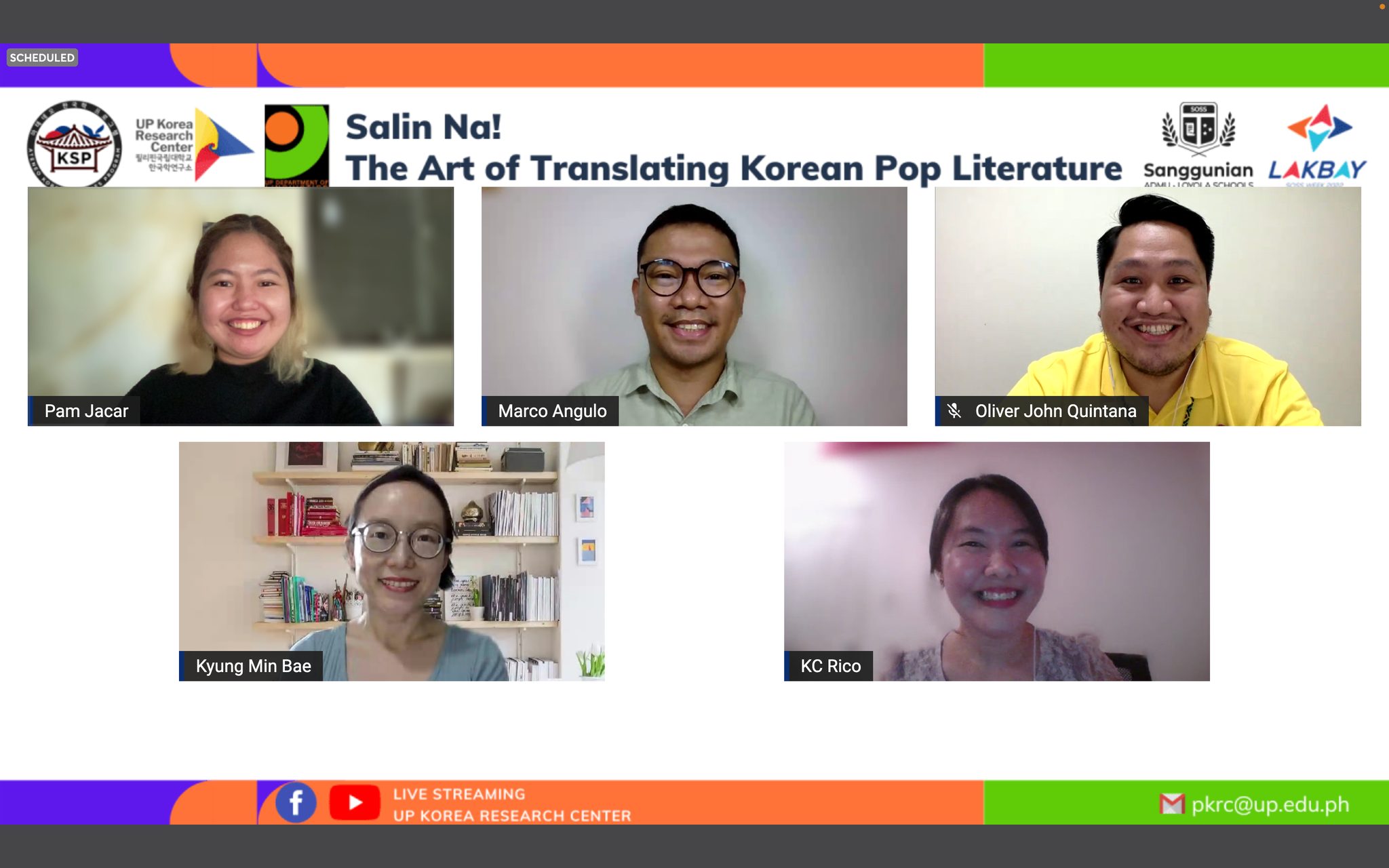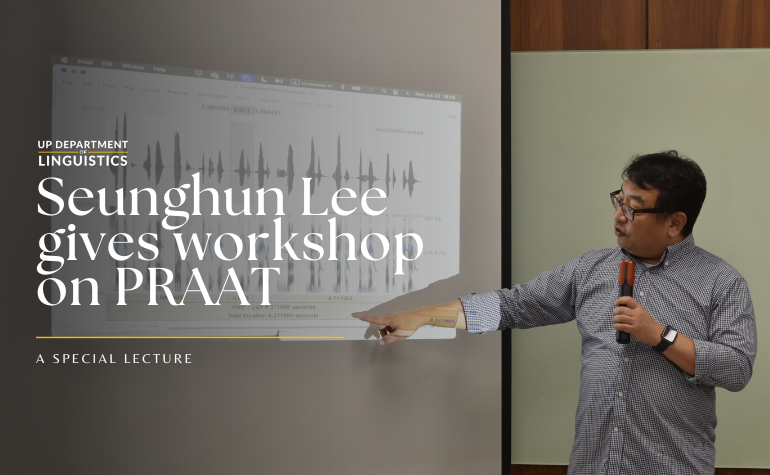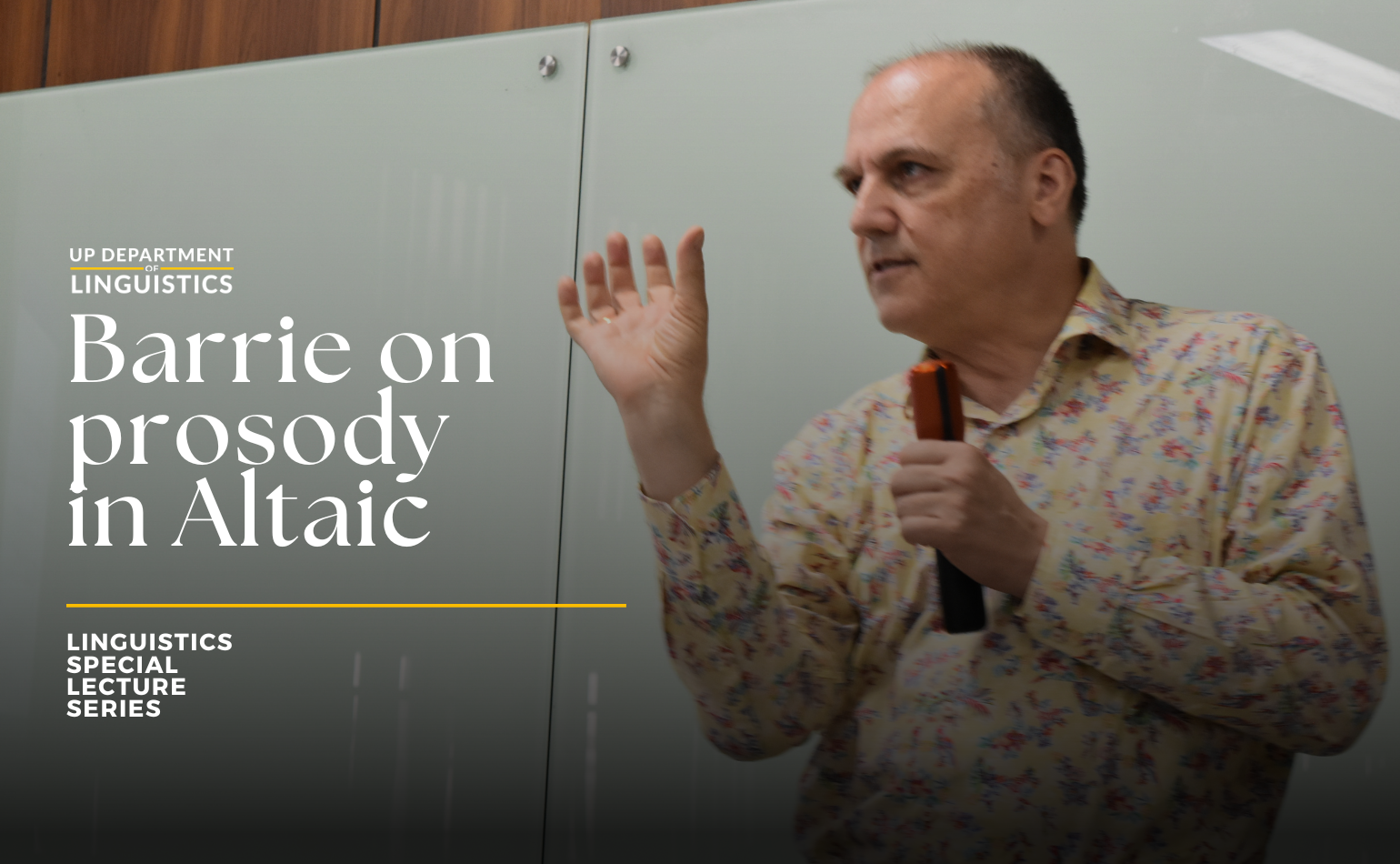
The Department collaborated with the Ateneo Korean Studies Program and the UP Korea Research Center in organizing “Salin Na! The Art of Translating Korean Pop Literature,” which was held online last April 7, 2022. The forum explored questions about the joys and challenges of translating literary works, expertly answered by Dr. Kyung Min Bae and Senior Lecturer Ma. Kristina Carla S. Rico based on their own experiences in translating contemporary Korean literature into English.
The program formally began with the opening remarks delivered by Mr. Oliver John C. Quintana, Director of the Ateneo Korean Studies Program. Mr. Quintana talked about how language and literature can transport us to the places that we dream of traveling to, which is especially useful during our current pandemic era of confinement and travel restrictions. He hoped that this talk on translating Korean literature will lead to further understanding and appreciation of Korean heritage, identity, and culture.
Moderator Mr. Marco S. Angulo, also one of the Korean language lecturers of our Department, began the webinar by inquiring how the speakers got involved in Korean Studies, as well as how they developed their love for Korean literature. It is interesting to note how instrumental literature has been in shaping the consciousness of a Korean native and a Korean language learner, even before dedicating themselves to Korean Studies. Dr. Bae expressed her love for reading and considered books as her means of imagining the world outside Korea when she was young. She also talked about how she reconnected with the works of her favorite authors during the pandemic by revisiting old books written in her mother tongue. Ms. Rico recounted memories of encountering a Korean poem in the movie The Classic, visiting Kyobo Book Store as a student, and reading “The Love of a One-Eyed Fish” from Ryu Shi Hwa’s poetry collection. It became her habit to buy books whenever she visits Korea, learning about the dominant sentiments in the country from bestselling works, even as she continued to develop her proficiency as a student of the language. Her love for Korean literature eventually prompted her to finish her master’s degree on Korean language and literature at Kangwon National University in South Korea after earning her bachelor’s degree in linguistics from the Department.
Dr. Bae and Ms. Rico collaborated on the English translations of several books, which were released in quick succession by local publisher, Apop, in the past couple of years. In discussing how they got started in translating Korean literary works, Ms. Rico recalled that it was around October 2019 when she was referred to Apop. The publisher wanted to venture into translating Korean literary works for the English-speaking market, in line with the current Hallyu trend among Asian countries. Ms. Rico gladly accepted the task, viewing translation as the next step after teaching the language. She brought Dr. Bae on board and together they worked on translating bestselling Korean titles, which also include recommendations from famous Korean celebrities, such as the Korean boyband BTS. Ms. Rico mentioned that the publisher also asks for their opinion, as well as suggestions from their avid readers on selecting Korean works that they wish to be translated.
What makes their translations more effective and special is the fact that they work as a pair, with one half of the duo being a native speaker, who can bring her native intuition for the language and her own lived experiences growing up in South Korea, and the other half a trained linguist, who learned Korean as a foreign language and brings not only an outsider’s perspective in analyzing the literary works but also her knowledge and experience gained from teaching Korean as a foreign language to Filipino learners about what the target readers might look for or information that they might need in reading and understanding the sentiments of the Korean authors whose works that they translated.
After Ms. Rico detailed the stages of translation, from reading the whole text to revising and submitting it to the editor, Dr. Bae pointed out how translation work is different when one works with a partner. “Translation,” according to her, “is a very lonely journey” considering that most translators work alone. In their case, however, they find comfort in sharing the same book, reflecting on a piece’s message together, and checking each other’s work. Having a co-translator means that there is someone who can help, and someone with whom ideas and insights can be exchanged. Moreover, they attributed their smooth working relationship to having the same goal, which is to convey the message of an author in the best way possible.
Of course, translation work involves making choices. This is especially true with slang and cultural words that are commonly found in Korean pop literature. Some strategies employed by Dr. Bae and Ms. Rico include using romanization over direct translation for some words, adding footnotes, and coining phrases that try to capture the play of words in the original text. Translating some turns of phrases and some of the ideas in the original text can sometimes be difficult due to linguistic and cultural differences. Dr. Bae and Ms. Rico also discussed how they tried their best to preserve the culture embedded in the text and embodied as well by the source language, and translate them to something that can be understood by Filipino readers and other English-language users.
When asked what advice they can give to those who would like to venture into the field of translation, they provided practical tips regarding engagement with the source and target languages. For Ms. Rico, aside from reading a lot of books, aspiring translators must exert an effort to consciously learn while doing the things that they like. Watching video clips, for example, can be treated as a chance to become more familiar not just with the source language but also with the target language. She then underscored the value of appreciating the source language, explaining that “If you see the beauty in its form, the way words are connected and expressed to create—to convey—a certain message, then you would be more motivated, maybe more inspired. And also you would tend to challenge yourself more to [create] an equally beautiful sentence in the target language.” Dr. Bae agreed with Ms. Rico, and added that it is also helpful to observe how different languages work. Doing so will aid one in seeing the nuances of translating from one language to another.
During the open forum, some questions asked by the audience revolved around dealing with writer’s block, prospects of translating Korean novels in the local publishing industry, and the challenges of localizing foreign literature for Filipino readers.
Asst. Prof. Jem Javier concluded the program by emphasizing the intricacies of translation and how Dr. Bae and Ms. Rico’s works uphold the principles of faithfulness to the literary works in Korean that they translated and their relatability to the Filipino readership.
Aside from Soo Hyun Kim’s I Decided to Live as Me, a book about self-love and believing in yourself, and its follow-up book, Being Comfortable without Effort, which is about relationships and setting boundaries, other works translated by Dr. Bae and Ms. Rico include 1cm Origin, written by Eun-Ju Kim and illustrated by Kim Jae-yeon, Every Moment Was You by Tae-wan Ha, I See You Like I See A Flower, a collection of poems by Na Tae Joo, There Are No Bad People In the World by Jae-hoon Won, and You Can Wind Down From Time to Time, which was written by Dan Kim and illustrated by Chae-lee Young. Their books are available for purchase on Apop’s website.
The recording of the Salin Na! webinar is available on UP Korea Research Center’s YouTube channel.
Published by Patricia Anne Asuncion



